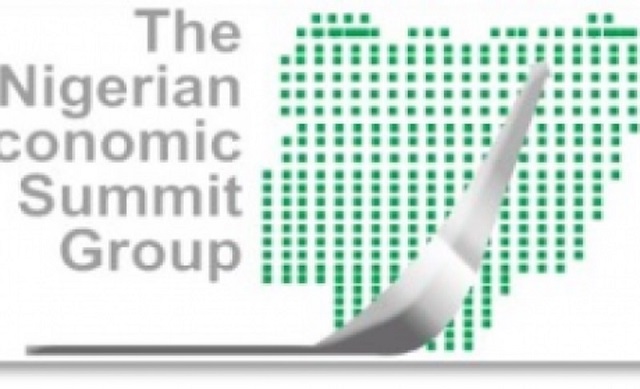Nigerian Economic Summit Group (NESG) has predicted that the Nigerian economy would contract by 7.3 per cent in 2020 if the average crude oil price slumps to $15 per barrel in 2020 and Nigeria’s crude oil output averaged 1.3 million barrels per day (mbpd).
NESG noted that this worst-case scenario would be driven by a persistent escalation of the spread of COVID-19 with its attendant restrictions on economic activities.
The projection is contained in NESG’s report titled: “Macroeconomic Outlook Update: COVID–19, Global Oil Price and The Nigerian Economy” released yesterday.
The group said the occurrence of the worst-case scenario would drive the country’s real GDP deeper into recession.
“Real GDP will decline by 7.3 per cent in 2020. Investment level, as well as government revenue, will decline significantly by 65 per cent and 63 per cent respectively in 2020. Inflationary pressure intensifies as inflation rate averages 18.4 percent in 2020,” the report noted.
However, the report assumed that the best-case scenario for Nigerian macroeconomic projection for 2020 in the light of COVID-19 pandemic would occur if the global oil price would experience stability and averaged $35 per barrel in 2020 from the current sub $25 per barrel at the end of April.
The report noted that this scenario would be above the revised 2020 budget benchmark and the best-case projection would thrive on the assumption that the spread of COVID-19 would be contained to enable major economies to resume production while the tension between Saudi Arabia and Russia would be resolved with an agreement to cut oil output.
“In terms of production, this scenario assumes an improvement in crude oil production to settle at 1.3 mbpd following renewed demand in the market, the relative peace in the Niger Delta region and recent commitments by the leaders of the National Assembly to begin work on the different aspects of the Petroleum Industry Bill (PIB),” the report said.
NESG projected that the outcomes of the best-case scenario would see the GDP decline by 4.1 per cent in 2020. This decline, according to the report, would be occasioned by a contraction in agriculture, manufacturing, trade, and oil and gas sectors.
“Investment will decline by 39.4 per cent in 2020 as much investment would have gone into social security and palliatives. Government revenue will plunge by 40 per cent in 2020 as oil and non-oil revenues are constrained. Inflation averages 15 per cent in 2020 sequel to the global supply chain and devaluation of naira from N306 per dollar to N360 per dollar,” NESG said.
The report also contained a middle-ground scenario, which stated that “in the business-as-usual scenario, we project a less optimistic overview of oil price compared with the first scenario. Here, we see a deeper downturn in the global oil market reflecting in oil price averaging US$20 per barrel in 2020.
This manifests as the COVID-19 spread curve is flattened while the chase for a vaccine continues and some parts of the world remain on lockdown. The assumption on oil production remains at 1.3 million barrels per day (mbpd).
“The outcome for this scenario is a deeper cut in economic activity. The economy is expected to slip into a deeper recession as the real GDP contracts by 5.3 per cent.
This will be as a result of the deeper contraction in major growth drivers in the economy. Investment is expected to decline by 50 per cent as government revenue dips by 51 per cent in 2020. Meanwhile, inflation will average 17.5 percent in 2020,” the report said.
NESG stated that the outbreak of the COVID-19, with its attendant restriction on economic activities and severe impact on the oil market would reverse Nigeria’s growth of 2.3 per cent that was achieved in 2019.
It said in the first quarter of 2020, the effect of the pandemic and the slump in crude oil price were evident on Nigeria’s Purchasing Managers’ Index (PMI), which tracked the performance of the business aspect of the economy.
“The Manufacturing PMI, though still on the expansionary benchmark slid to 51.1 points in March 2020 from 60.8 points recorded in December 2019. On the other hand, the non-manufacturing sector contracted as its PMI slid to 49.2 points in March 2020 from 62.1 points recorded in December 2019. This suggests a significant slowdown in economic activities in Q1’2020
“The lockdown of several states and the Federal Capital Territory (FCT) in the second quarter of the year will have an immense negative impact on GDP growth in the year. The three major GDP components – household consumption, government spending, private investment – were constrained during the lockdown affected due to the spread of COVID-19 and are expected to perform poorly in full-year, relative to 2019.
“This is based on the high level of uncertainty over the pandemic as well as the fragility of the economy exemplified by the poor performance of major macroeconomic indicators,” NESG said.
Source: THISDAY












